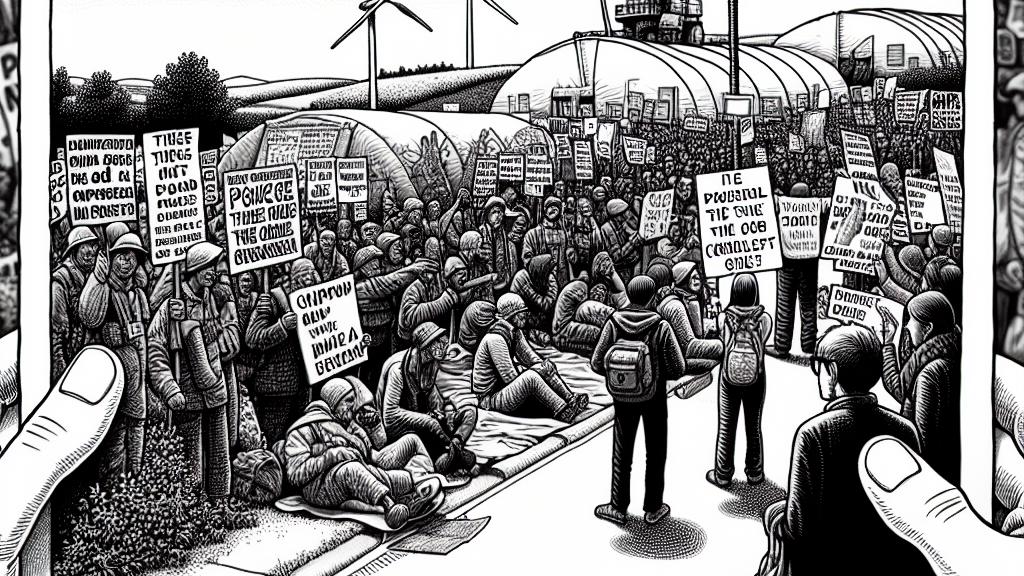Apology in Comic Magazine for Controversial Expression
Overview
- The comic 'Shima Kousaku' ignited controversy by suggesting protesters in Okinawa were financially compensated for their activism.
- Kodansha, the publisher, promptly issued a public apology and committed to refining their editorial processes to prevent future misrepresentation.
- This incident underscores the complexities of military issues in Okinawa, illustrating the diverse perspectives surrounding protest movements.

Context and Background of the Controversy
In Japan, specifically in Okinawa, a significant uproar arose over the popular comic series 'Shima Kousaku.' The comic introduced a scene where characters imply that individuals protesting against the new military base in Henoko were being paid to demonstrate. This portrayal generated an avalanche of criticism, as activists contended that it maliciously misrepresented honest, dedicated individuals who sacrifice their time and energy purely out of conviction. For instance, many protesters have spent weeks camped outside the base, unwavering in their commitment to advocating for peace and environmental sustainability, often at personal cost. Such a careless depiction, suggesting financial motivation, not only trivializes their serious struggle but also reinforces negative stereotypes about social movements.
Kodansha's Response and Commitment to Improvement
Faced with mounting backlash, Kodansha swiftly responded by publishing a heartfelt apology in the October 31 issue of 'Morning.' They explicitly acknowledged the distress their publication caused, stating that the portrayal relied on unverifiable hearsay rather than solid evidence. In this apology, the editorial team emphasized their dedication to elevating their standards for editorial oversight, promising improved collaboration between departments to thoroughly vet content before publication. Importantly, they recognized the need for rigorous fact-checking procedures to prevent similar misinformation in the future. This commitment to transparency and responsibility resonates deeply with the audience, illustrating the vital role publishers play in shaping public discourse and accountability.
Implications for Society and Media Responsibility
This controversy serves as a potent reminder of the fragile nature of public discourse around contentious topics like military presence in Okinawa. Misleading representations in media can exacerbate misunderstandings and muddy the waters of legitimate activism. Many of the individuals involved in the protests passionately assert that their motivations are grounded in ethical concerns for their communities and the environment, not financial incentives. As such, this incident highlights the essential responsibility of media creators to navigate complex social narratives with sensitivity and precision. Moving forward, it is crucial for creators and publishers alike to engage meaningfully with the realities of social movements, ensuring that their portrayals do not perpetuate harmful myths or undervalue the courage of those who stand up for justice.

Loading...